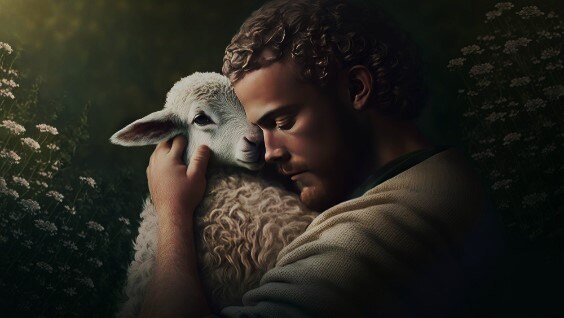First Sunday in Advent
Every year as Advent creeps up on me — how, exactly, is it the last of November already — and my heart turns to contradictory reflections.
The first Sunday in Advent signifies hope. The hope for the new creation in God’s love. The hoped-for coming of a savior for all. Christmas! The month ahead is filled with music and images of pregnancy, anticipation, mystery. Christians remind themselves of the unlikely bearer of the God-child, a child herself. Preachers wonder about Mary’s acceptance of the role announced by angels. We cast children into pageants that even more starkly illustrate how incongruous her calling was, and we celebrate the successful delivery of the hope of the world. Birth and new life bear light into the shortest days of the year.
Elizabeth: An “Old” Woman
But, if we take time to read the full accounts of the days before Jesus’ birth, we uncover another story. A story of an aging relative, pregnant herself, and also full of mystery.
Elizabeth was a parent figure to Mary. Or, at least she was likely old enough to be Mary’s mother. The scriptures tell us she and her husband Zechariah were “an old man” and “an old woman.” Other translations say they were “very old.” Unlikely candidates for a hopeful future. And yet, they too were called to be parents; parents of one called by God, named John.
Louise Aronson’s book Elderhood invites us to consider a time of life that: “For more than 5,000 years, ‘old’ has been defined as beginning between the ages of 60 and 70. That means most people alive today will spend more years in elderhood than in childhood, and many will be elders for 40 years or more.“
We don’t know exactly how old Elizabeth and Zechariah were, but their impending parenthood was unusual. They were likely regarded as elders. But, what does elderhood hold for us these days?
I’m a new grandparent, just over 60, feeling pretty young but knowing that I am now early into that season of “old” age.
Elizabeth and Mary
I believe Mary went to Elizabeth for wisdom and companionship and hope. And, in her age, Elizabeth offered back to Mary — the favored one.
She offered welcome and possibility. She offered a connection to ancient reassurance of God’s presence. Elizabeth opened the door to Mary’s knock and was herself changed. She recognized her young relative and knew they shared something important. Elizabeth connected Mary to the ancient words of joy and song and to the upside-down theology of the salvation offered by a baby, to the rising up of the weak and to the promises of God.
We, too, offer hope and love to the generations coming behind us. Even when the prevailing wisdom about whether to introduce formula and what kind is best for a baby is different than we remember, we “elders” can still comfort a crying baby, recall times of sleeplessness, write a note or pray.
We can recognize that as we age, our responsibility changes. We don’t have to shoulder it all, but we can honor the skills and value of younger folks and connect them with universal truths.
Elders Offering Hope
As the fabric of life changes and our attention moves from the big-picture overview of just getting through life from adolescence to middle age to a more nuanced examination of a shorter span of years — from 60, say, to 90 — our tapestry threads are more noticeable. Mary L. Fraser writes in her essay, “Eldering as Invitation,” about this changing perspective. She says:
Today I am fifty-seven years old, and I am an elder … I continue to listen for the ongoing revelation of God. But today, my purposes are more complex,
like a tapestry whose threads are reaching the inner circle where the work is fine, delicate, and detailed. Now my threads must include colors that invoke
inspiration and hope for those coming behind me.
Fraser goes on to give us a glimpse of abundance in aging. She offers to a young colleague: “my witness to a long journey mothering, pastoring counseling, grieving, and loving.” She is an Elizabeth to her friend. May we all join her in the ancient transmission from generation to generation, whereby we “imprint each other with this enduring hopefulness, this abiding compassion for our lives and the life of the world. May we understand that God approaches us … with an invitation to a way of living not marked by age but by grace.”
Mary L. Fraser’s quotes are from “Eldering as Invitation” in Weavings: A Journal of the Christian Spiritual Life, Vol. XXXI, Number 3, May/Jun/Jul 2016.
View all articles by:






















